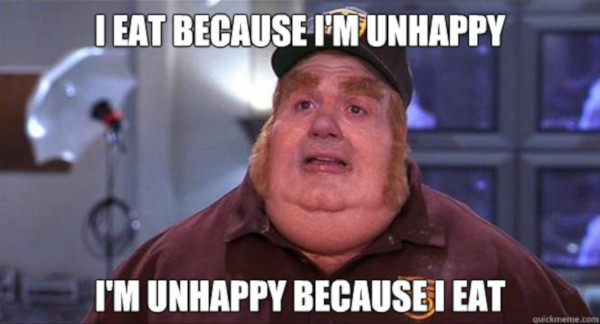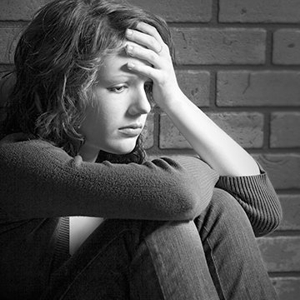Researchers have discovered a causal link between obesity and a common reaction to living in, or simply believing one is living in disadvantaged circumstances. This finding may amplify our understanding of why lower income people tend to be more obese than higher income individuals…
 Disgustingly obese evil henchman character Fat Bastard, from the Austin
Disgustingly obese evil henchman character Fat Bastard, from the Austin
Powers movie franchise, sums up the unhappy eating dichotomy…
What they did
Researchers at the Nanyang Technological University in Singapore and the Singapore Institute for Clinical Sciences wanted to know whether the mere perception that one is suffering socioeconomic disadvantage influences food preferences and eating behaviors.
To do this, one group of study participants were led to feel they had fewer resources and opportunities compared to others. Researchers led them to believe they has fewer socioeconomic resources and advantages than others. Another group was led to believe they were more advantaged than others by having them keep a ‘gratefulness’ journal every day for two weeks. A control group simply kept journals about what happened in their lives every day.
What they found
Participants who experienced feelings of socioeconomic disadvantage ate more calories from snacks and meals offered during the experiment, served themselves larger portion sizes of foods, and showed increased ability to detect differences in calories between beverages. They also showed elevated levels of ghrelin – often referred to as the ‘hunger hormone’ – providing a biological explanation for the desire to eat more under these conditions.
Those who were led to believe they were more advantaged tended to eat less and serve themselves smaller portions than the control group.
The takeaway
“If feelings of deprivation and inadequacy produced by perceived socioeconomic inequality can stimulate appetite and food intake, then it’s possible that feeling that important needs in one’s life have been satisfied may produce the opposite effect of reducing excessive food intake,” said Study Spokesperson Dr. Bobby Cheon.
My take
I agree strongly with the Study’s overall conclusion that, “[A]lthough inadequate access to healthy foods is often blamed for obesity in populations with lower socioeconomic status, this research shows that the psychological consequences of social and economic inequality are also detrimental to health.”
I also think that plain old emotional upset – perceptions of fear, imminent danger, insecurity or weakness – can lead to folks eating whatever is available or convenient to help them feel less threatened. I believe this reaction is rooted in our ancestral memories of times when our next meal was not a given; we never knew know when we would be able to eat next or what we would have available to eat.
Whether its my theory or Cheon’s that underlies the behaviour, the observation that less-advantaged folks eat more of what they can afford remains equally valid. I wonder if Cheon’s team could devise an experiment that tries to teach such people that as U.S. President Franklin Delano Roosevelt told his country on its entry into the Second World War: “We have nothing to fear is fear itself’?
~ Maggie J.

